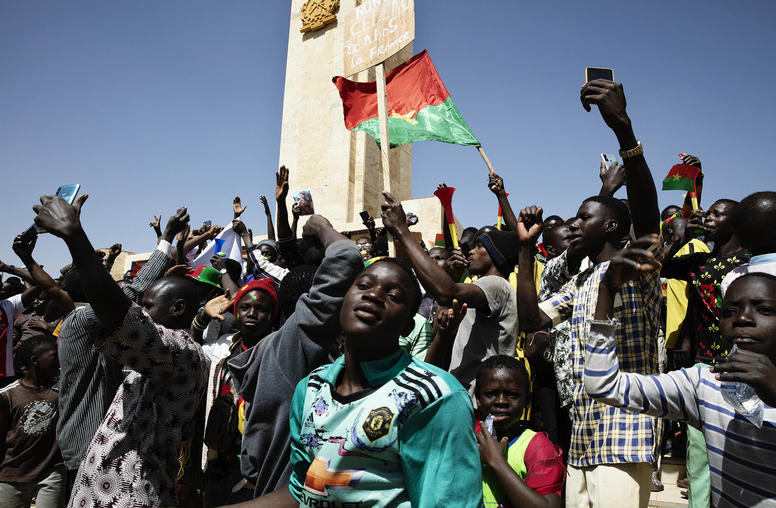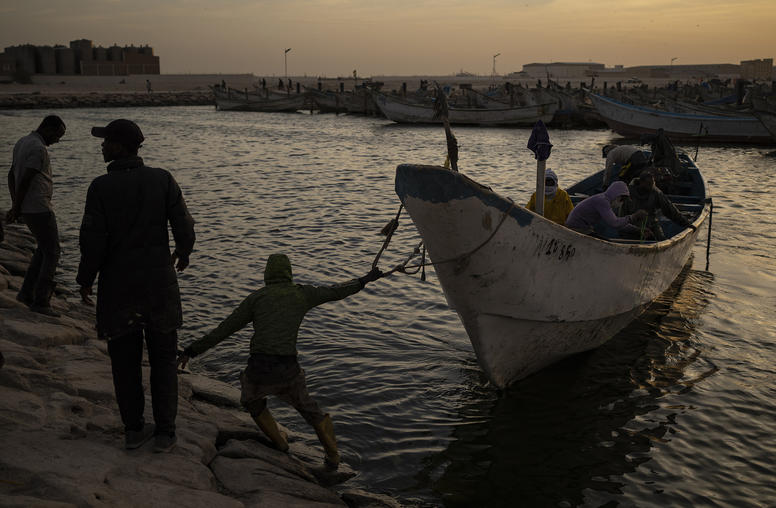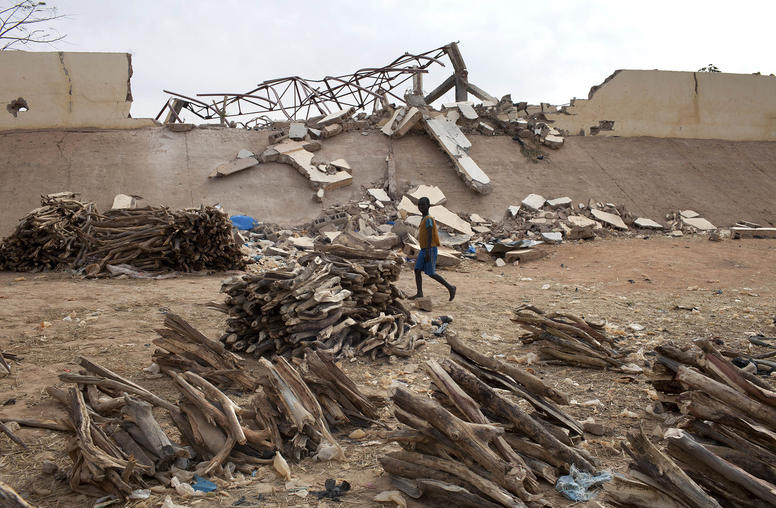USIP conducted a conflict resolution workshop on behalf of the US Embassy in Niger. The Nigerien High Commissioner for the Restoration of Peace had approached the US Embassy to conduct the workshop for leaders with influence in Nigerien society. USIP trainers Jacqueline Wilson and Nina Sughrue conducted a three-day workshop in mid-October in the remote corner of Niger's Park W national park near their borders with Burkina Faso and Benin for 25 representatives of parliament and ministries, as well as NGOs and other civil society elements.
Niger, a landlocked country of West Africa, is one of the world's poorest, least developed countries. Niger is a diverse mix of desert to the north (which encompasses 80% of the country) to the semi-arid grasslands of the Sahel to the green wildlife preserves of the south. The pastoralist, desert-inhabiting Tuareg ethic group, whose traditional territory includes Niger, Mali, Algeria, Burkina Faso, and Libya has had a history of disenchantment and rebellion in the region. In the mid-1990's the governments of Mali and Niger signed peace agreements with the Tuaregs. Since then, the financially constrained governments of Niger and Mali have attempted to work on building schools and clinics in Tuareg-inhabited areas as well as other areas of the country. However, a splinter faction has kept the rebellion simmering in Niger, due to its conviction that the Tauregs should gain a greater share of the profits from resources within their home region – namely uranium ore.
The Nigerien High Commissioner for the Restoration of Peace (a Tuareg himself and a signatory of the peace agreement in the mid-1990s) approached the US Embassy about a conflict resolution workshop for leaders with influence in Nigerien society. The US Embassy in turn approached the US Institute of Peace to conduct such a program. Institute trainers Jacqueline Wilson and Nina Sughrue conducted a three-day workshop in mid-October in the remote corner of Niger's Park W national park near their borders with Burkina Faso and Benin for 25 representatives of parliament and ministries, as well as NGOs and other civil society elements. The locale was three hours away from the busy life of the capital city Niamey and was a perfect spot. For the first two days, the participants worked on developing skills such as active listening, negotiating, problem solving, and learning how to understand underlying interests from negotiating positions. Interactive role-playing exercises were an integral part of the training session, reinforcing the conceptual frameworks presented by the USIP trainers.
On the final day of the program the participants submitted sample conflicts in Niger that were categorized into four areas: armed conflicts, economic issues, social issues, and electoral topics. The groups were to define a specific problem in one of the four categories to analyze and then prepare action plans utilizing their new skills ranging from purposeful communication to dialogue to negotiation or third party interventions.
The most challenging topic turned out to be in the social issues group, which decided to work on the impasse in the Nigerian parliament over the ratification of the international women's convention. The group featured five members, but after an hour of trying to define the problem, it became clear that two of them were locked in confrontational debate. Their gestures, facial expressions and body language all betrayed their best attempts to appear to be listening. Jacki Wilson offered to facilitate the group. After almost a half hour of guiding the discussion, several exasperated members of the group said they should just change their topic because they could not come to consensus, and they were not even able to achieve the first step.
According to Wilson, "I encouraged them to continue, as I knew that if they did not succeed in this effort they would leave the program frustrated, disappointed, and at least two of them would leave angry! I gave them one more piece of advice that is a core principle of active listening: Seek to understand before you try to persuade. Then I left the group to their own work." It was clear that both parties were focusing on achieving the outcome they hoped for from their perspective, not on the process of gathering information. They were battling over the language rather than focusing on listening or understanding each other.
After some time, the two participants worked through their disagreement utilizing the skills taught in the workshop and were able sit calmly beside each other, smiling and relaxed during the last session of the workshop. Each had come to understand why he had reacted the way he did. Each had come to realize that his path was not leading toward resolution but rather toward increasingly heated dialogue. Instead, through the hard work of true listening and by applying the skills of the program, they were able to see how they could work together on resolving this highly charged issue.
Certainly Niger will not be a totally peaceful country due to a single three-day workshop. But due to the dedication of 25 key leaders of this small country, the country can now go about solving some of its problems in new ways. They have thought through new, non-violent approaches to resolving some of the conflicts Niger is experiencing and they have gained skills that can be used to prevent potential violence in their society.



